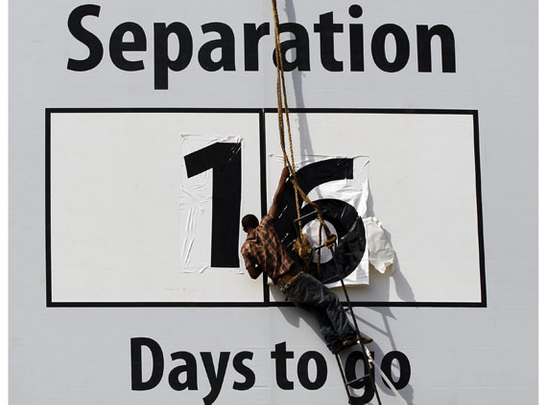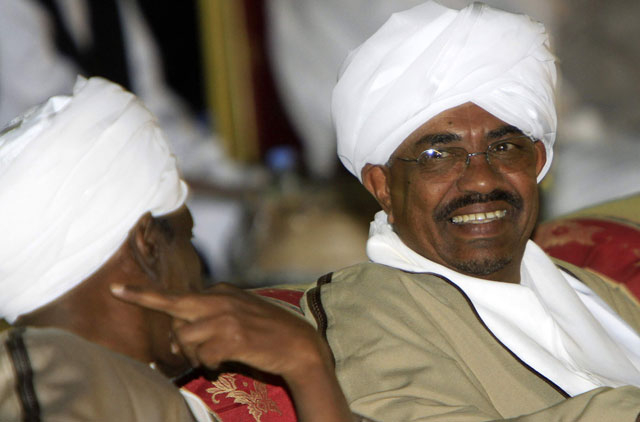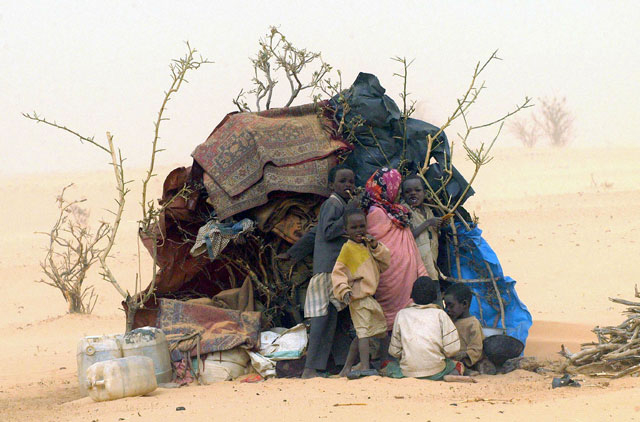
1899-1955 Sudan is under joint British-Egyptian rule.
1956 - Sudan becomes independent.
1958 - General Abboud leads military coup against the civilian government elected earlier in the year
1962 - Civil war begins in the south, led by the Anya Nya movement.
1964 - The “October Revolution” overthrows Abbud and an Islamist-led government is established
1972 - Under the Addis Ababa peace agreement between the government and the Anya Nya, the south becomes a self-governing region.
1978 - Oil discovered in Bentiu in southern Sudan.
1983 - Civil war breaks out again in the south involving government forces and the Sudan People’s Liberation Movement (SPLM), led by John Garang.
1983 - President Numeiri declares the introduction of Sharia Islamic law. Civil war pitted Muslim north against Christian, animist south
1985 - After widespread popular unrest Numayri is deposed by a group of officers and a Transitional Military Council is set up to rule the country.
1989 - National Salvation Revolution takes over in military coup.
1993 - Revolution Command Council dissolved after Omar Al Bashir is appointed president.
1998 - New constitution endorsed by over 96% of voters in referendum.
1999 - President Omar Al Bashir dissolves the National Assembly and declares a state of emergency following a power struggle with parliamentary speaker, Hassan al-Turabi.
2001 Islamist leader Al Turabi’s party, the Popular National Congress, signs memorandum of understanding with the southern rebel SPLM’s armed wing, the Sudan People’s Liberation Army (SPLA). Al Turabi is arrested the next day, with more arrests of PNC members in the following months. Government accepts Libyan/Egyptian initiative to end the civil war after failure of peace talks between President Omar Al Bashir and SPLM leader John Garang in Nairobi.
2002 - Government and SPLA sign landmark ceasefire agreement providing for six-month renewable ceasefire in central Nuba Mountains - a key rebel stronghold.
2003 February - Rebels in western region of Darfur rise up against government, claiming the region is being neglected by Khartoum.
2004 January - Army moves to quell rebel uprising in western region of Darfur; hundreds of thousands of refugees flee to neighbouring Chad.
2004 March - UN official says pro-government Arab Janjaweed militias are carrying out systematic killings of non-Arab villagers in Darfur. Army officers and opposition politicians, including Islamist leader Hassan Al Turabi, are detained over an alleged coup plot.
2005 January - Government and southern rebels sign a peace deal. The agreement includes a permanent ceasefire and accords on wealth and power sharing.
2005 June -President Omar Al Bashir frees Islamist leader Hassan Al Turabi, detained since March 2004 over alleged coup plot.
2005 9 July - Former southern rebel leader John Garang is sworn in as first vice president. A constitution which gives a large degree of autonomy to the south is signed.
2005 1 August - Vice president and former rebel leader John Garang is killed in a plane crash. He is succeeded by Salva Kiir. Garang’s death sparks deadly clashes in the capital between southern Sudanese and northern Arabs.
2006 May - Khartoum government and the main rebel faction in Darfur, the Sudan Liberation Movement, sign a peace accord. Two smaller rebel groups reject the deal. Fighting continues.
2007 May - International Criminal Court issues arrest warrants for a minister and a Janjaweed militia leader suspected of Darfur war crimes.
US President George W Bush announces fresh sanctions against Sudan.
2008 April - Counting begins in national census which is seen as a vital step towards holding democratic elections after the landmark 2005 north-south peace deal.
UN humanitarian chief John Holmes says 300,000 people may have died in the five-year Darfur conflict.
2008 November - President Omar Al Bashir announces an immediate ceasefire in Darfur, but the region’s two main rebel groups reject the move, saying they will fight on until the government agrees to share power and wealth in the region.
2009 January - Sudanese Islamist leader Hassan Al Turabi is arrested after saying President Omar Al Bashir should hand himself in to The Hague to face war crimes charges for the Darfur war.
2009 March - The International Criminal Court in The Hague issues an arrest warrant for President Omar Al Bashir on charges of war crimes and crimes against humanity in Darfur. The first ever warrant to the ICC for the arrest of a sitting head of state.
2009 August - Darfur war is over, says UN military commander in the region, in comments condemned by activists.
2010 January - President Omar Al Bashir says would accept referendum result, even if South opted for independence.
2010 April - President Omar Al Bashir gains new term in first contested presidential polls since 1986.
2010 July - International Criminal Court issues second arrest warrant for President Omar Al Bashir - this time for charges of genocide. He travels to Chad.
2010 October - Timetable set for southern independence referendum, due to be held on 9 January, 2011
Source: BBC














